
Journal Menu
► ▼ Journal Menu-
- Coatings Home
- Aims & Scope
- Editorial Board
- Reviewer Board
- Topical Advisory Panel
- Instructions for Authors
- Special Issues
- Topics
- Sections & Collections
- Article Processing Charge
- Indexing & Archiving
- Editor’s Choice Articles
- Most Cited & Viewed
- Journal Statistics
- Journal History
- Journal Awards
- Society Collaborations
- Conferences
- Editorial Office
Journal Browser
► ▼ Journal BrowserNeed Help?
Announcements
14 June 2023
Interview with Dr. Costică Bejinariu—Winner of the Coatings 2022 Outstanding Reviewer Award
We would like to thank the award committee of Coatings (ISSN: 2079-6412) for their hard work in selecting two winners from such a large number of exceptional candidates, with Dr. Costică Bejinariu being one of the winners. We will continue to reward reviewers with the Outstanding Reviewer Award to acknowledge their efforts in maintaining the high quality and quick turnaround time of the journal, and we wish them every success in their careers.

Short biography: Dr. Costică Bejinariu is a full professor and researcher at Gheorghe Asachi Technical University of Iasi, Romania, with over 35 years of academic experience. He also holds the position of Vice Dean at the Faculty of Materials Science and Engineering and has been a Ph.D. supervisor since 2009. He has completed five doctoral theses and currently supervises 10 doctoral students.
Dr. Costică Bejinariu’s main field of expertise is materials engineering. He has published 25 books/chapters and monographs, over 250 research papers with more than 1000 citations, and possesses an h-index of 18-WoS/20-Scopus. He has worked on over 50 scientific research and development contracts; for 5 of which he was the project director, and for 2 projects he worked as the project manager. Furthermore, he owns 12 invention patents in the field of materials engineering, which were presented at numerous invention conferences, where he was awarded medals.
Dr. Costică Bejinariu is an active member of several professional associations in the field, a reviewer for multiple scientific journals, and is on scientific committees of different congresses. He is a member of the Committee of Materials Engineering, Engineering and Materials Science of the National Council for Attestation of University Titles, Diplomas and Certificates (CNATDCU), which is an independent, national consulting entity in Romania.
Contact emails: costica.bejinariu@academic.tuiasi.ro; costica.bejinariu@tuiasi.ro; costica.bejinariu@yahoo.com; costica.bejinariu@gmail.com
We hope you enjoy the interview.
1. Could you give a brief introduction of yourself to the readers?
I am a university professor at Gheorghe Asachi Technical University in Iasi, Romania, and am involved in both teaching and research. The main subject that I teach undergraduate students is materials technology, materials science and engineering, a subject with content related to the elaboration of metallic materials and the processing of metallic materials via casting, plastic deformation, welding, etc. As a secondary discipline, I teach assessment of occupational injury and illness risks to master's degree students. I conduct research with doctoral and postdoctoral students in the field of materials engineering.
2. What is your current research and why did you choose this research field?
Currently, my main research is focused on the field of coatings via the conversion of metallic materials, in this case, the formation of phosphate layers on the surfaces of some metallic materials, mainly to improve steel corrosion resistance or to improve osseointegration for some biomaterials based on titanium.
3. Which research topics do you think will be of particular interest to the research community in the coming years?
In the materials engineering field, in the near future, the trends will be those of replacing some polymeric materials with biodegradable materials and the design of new materials with superior, multifunctional properties, such as smart materials with shape memory or transparent metallic materials.
4. Have you ever encountered any difficulties conducting research? How did you overcome them?
When you begin materials engineering research, the success rate is about 70%. In 30% of cases, either one abandons the research with the publication of the results so that other researchers don’t repeat the same work without success, or some surprising results appear, leading to more successful research.
5. What qualities do you think young scientists need?
Young people with a passion for research need perseverance and strong motivation. I, for example, with my experience gained so far, would not approach some research topics. Young people, however, in the unconsciousness of youth, may approach these topics and the result of their work may be a great success.
6. Can you briefly describe the key to a happy laboratory life?
If you are dedicated to working in the laboratory, the joy comes when the results appear. Being absorbed in your work leads to the intensification of your work, which helps with the dissemination of the results, and thus a happy life in the laboratory.
7. If you have the opportunity, will you actively apply to attend academic conferences? What do you think you can learn from participating in conferences?
The dissemination of results is key to laboratory work development. The exchange of experiences by participating in academic conferences, during the discussion of the results of the presented work, creates the opportunity for improving the work in your laboratory.
8. What do you think are the main criteria that should be taken seriously in the process of reviewing manuscripts?
First, the reviewer guidelines for each journal or group of journals must be followed. Second, each scientific paper is unique and must be reviewed according to the proposed objective, the results obtained, the interpretation of the results, and the drawing of conclusions. This should be achieved by using the research results under discussion.
9. We are an open access journal. How do you think open access impacts reviewers and authors?
Open access journals represent the optimal category of journals today and in the near future. Authors can easily consult scientific works with reference to the current stage of development in the narrow field that they are studying, and the reviewers can check the work much more easily with free access to the bibliography used. The time for evaluating the work is greatly reduced, and the quality of the evaluation is superior.
14 June 2023
Interview with Dr. Anca Mazare—Winner of the Coatings 2022 Outstanding Reviewer Award
We would like to thank the award committee of Coatings (ISSN: 2079-6412) for their hard work in selecting two winners from such a large number of exceptional candidates, with Dr. Anca Mazare being one of the winners. We will continue to reward reviewers with the Outstanding Reviewer Award to acknowledge their efforts in maintaining the high quality and quick turnaround time of the journal, and we wish them every success in their careers.
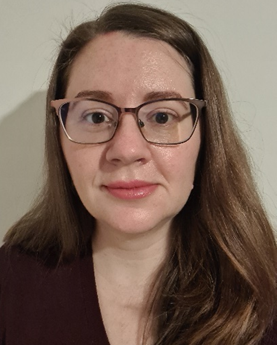
Short biography: Dr. Anca Mazare received her Ph.D. in chemistry from Politechnica University of Bucharest, Romania, in 2012 under the supervision of Prof. Demetrescu. She then joined the group of Prof. Schmuki at the Friedrich-Alexander University Erlangen-Nuremberg (FAU), Germany, in 2012 as a postdoctoral fellow, and was a visiting associate professor at AIMR, Tohoku University, Japan, for 13 months between September 2021 and January 2023. Currently, she is also pursuing her habilitation under the supervision of Prof. Schmuki. Her research field comprises oxide nanomaterials and their nanostructuring, composite materials of different oxides, oxide modification with organic materials, biomaterials, energy conversion, photocatalysis, and surface analytics (XPS, SEM, ToF-SIMS, AFM, electrochemical characterization). She is an active reviewer and has published more than 80 papers in international journals, has an h-index of 30, and has given numerous oral presentations/invited talks at international conferences.
Interests: nanomaterials; nanostructuring; nanomanufacturing; biomaterials; functional biomaterials; semiconductors; photocatalysis; electrocatalysis; X-ray photoelectron spectroscopy; surface analysis techniques; single atom; energy conversion
We hope you enjoy the interview.
1. Could you give a brief introduction of yourself to the readers?
As mentioned in my biographical statement, I am currently a postdoctoral researcher but I’m also additionally pursuing my habilitation at FAU. I enjoy the challenges that come with research in general, as well as the teaching opportunities.
2. What is your current research and why did you choose this research field?
I am currently working on oxide nanomaterials and their applications in energy conversion and biomedical areas. This is actually quite a vast field, but for me, I found my niche when I started my postdoctoral activity in 2012 working in the group of Prof. Schmuki, an expert in the field of nanostructured oxide materials via electrochemical anodization, and building upon this with targeted applications. I am also fascinated by surface analysis techniques that bring forth a more thorough understanding of materials’ properties.
3. Which research topics do you think will be of particular interest to the research community in the coming years?
Research topics are in a continuous state of development, especially regarding the strive for green energy, sustainability, and better utilization of resources. Besides these research directions, I strongly believe that medical research will always be of interest, i.e., devices, drugs, and biomedical applications. No matter the advances in the design of materials, analysis techniques also have to keep up, especially regarding nanosurfaces and in situ analysis.
4. Have you ever encountered any difficulties conducting research? How did you overcome them?
There are always difficulties in research. From the perspective of the research itself, what you plan/expect is not (always) what you get, so adaptability, finding alternate solutions to reach milestones, and resilience are always a must. My approach is seeing it as figuring out a puzzle, and I adapt based on my initial findings. One difficulty is related to time management, especially for researchers with kids who are directly dependent on their available childcare solutions. For me, the toughest time was the closure of kindergartens during the COVID pandemic, and I cannot say I overcame it, but I survived it.
5. What qualities do you think young scientists need?
Curiosity, adaptability, resilience, some analytical abilities, and good enough communication and collaboration skills.
6. If you have the opportunity, will you actively apply to attend academic conferences? What do you think you can learn from participating in conferences, which is different from working in a lab?
Yes, I do strive to actively attend academic conferences (although this is more difficult now with a 5-year-old and an 8-month-old baby). Participating in conferences strengthens one’s analytical skills (figuring out what others did from their presentations/posters), communication (being able to briefly explain why your research is important), language skills, and it can also improve collaboration skills. The highest impact lies in networking, which can bring about an increase in collaborations.
7. What do you think are the main criteria that should be taken seriously in the process of reviewing manuscripts?
This is a long list but some of the most important aspects are the following: Is there novel data or the reproduction of previous works? How does it fit into the research topic? Does the data support the authors’ conclusion? Are the methods clearly described (logical, reproducible, etc.)? Does it fit within the scope of the journal (consider its novelty too)? Is there a clear presentation of data, sound data presentation?
8. We are an open access journal. How do you think open access impacts reviewers and authors?
This enables greater accessability, as no subscription is needed and this leads to a higher distribution of the work and more visibility for the authors. The reviewers can be negatively impacted by the number of papers that they receive for review, as reviewing is time-consuming, and thus a balance between the research work, teaching, and other activities has to be found. However, reviewing strengthens one’s knowledge in their respective field of work and keeps reviewers up-to-date with recent scientific developments.
12 June 2023
Coatings Section Editor-in-Chief Dr. Michele Ferrari Visiting Barcelona Office
The editorial team of the journal Coatings (IF: 3.236, ISSN: 2079-6412) was honored to meet the Section Editor-in-Chief Dr. Michele Ferrari at the Barcelona office on 29 May 2023.
Dr. Michele Ferrari, from the Institute of Condensed Matter Chemistry and Technologies for Energy, National Research Council, Italy, was appointed Section-Editor-in-Chief of the Section “Environmental Aspects in Colloid and Interface Science” and became a Section Board Member of the Section “Corrosion, Wear and Erosion” of Coatings in 2021. During the visit, Dr. Ferrari offered us many professional suggestions which will be valuable for further improving the journal’s service.
We appreciate the support that Dr. Ferrari has given to MDPI, and we look forward to his contributions to the journal and the continued success of Coatings. Further information about the journal can be found here.
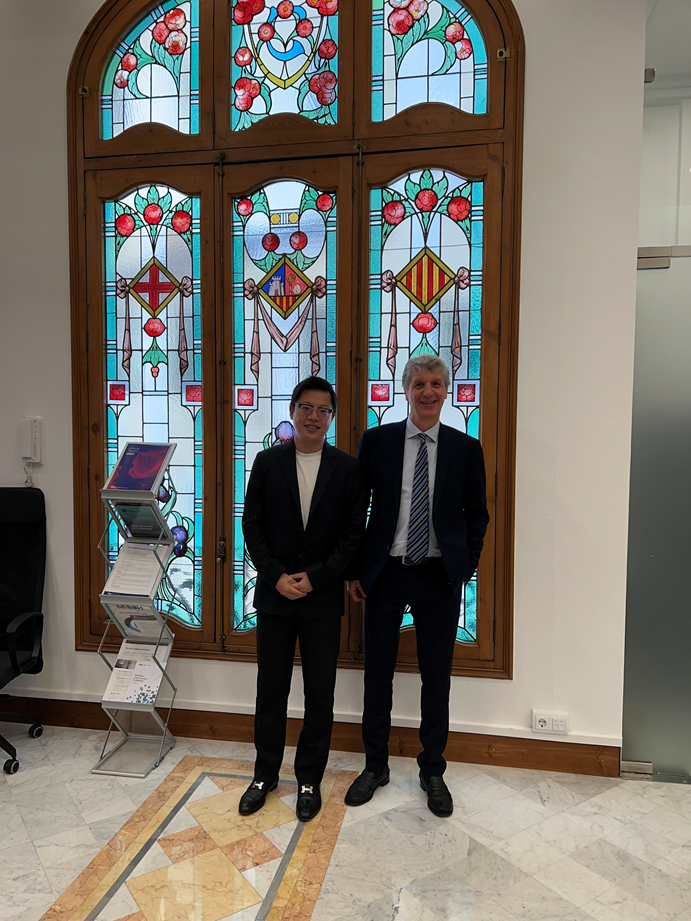 |
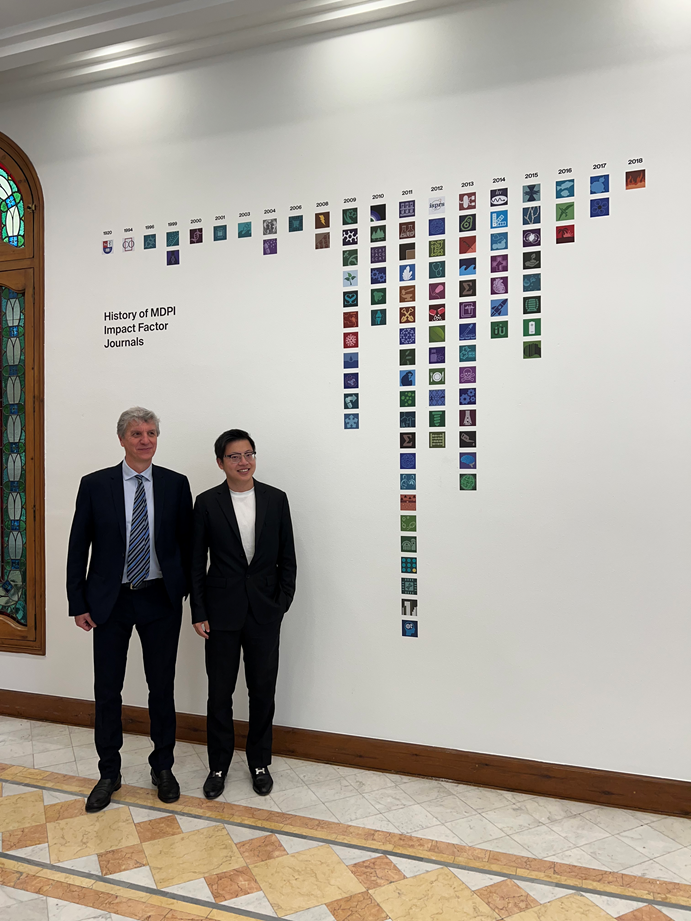 |
| (a) | (b) |
(a) From left to right: Regional Operations Director Mr. Hobart Mu and Dr. Michele Ferrari;
(b) From left to right: Dr. Michele Ferrari and Mr. Hobart Mu.
21 April 2023
Meet Us at the 21st National Electrochemistry Conference, 22–25 May 2023, Dalian, China

MDPI will be attending the 21st National Electrochemistry Conference, organized by the Chinese Society of Electrochemistry (CSE) and hosted by the Dalian University of Technology, which will be held from 22 to 25 May 2023, in Dalian, China. The conference will focus on the development of electrochemical science and comprehensively present the latest research progress and results achieved in electrochemistry in China in the new era. The aim is to promote the application of electrochemical science and technology in energy, environment, materials and other relevant fields, and to achieve the sustainable development of society.
The following MDPI journals will be represented:
- Energies;
- Molecules;
- Coatings;
- IJMS;
- Batteries;
- Symmetry;
- Processes;
- Catalysts;
- Crystals;
- Minerals;
- Technologies;
- Electrochem;
- ChemEngineering;
- Analytica;
- Chemosensors.
If you plan on attending this conference, please feel free to stop by our booth (#55) and start a conversation with us. Our delegates look forward to meeting you in person and answering any questions that you may have. For more information about the conference, please visit the following link: http://www.sciencemate.com/meeting/electrochem.
31 March 2023
Coatings | 22nd National High Technology Ceramics Annual Conference Held Successfully and New Editorial Board Member Appointed
The editorial team of the journal Coatings (IF: 3.236, ISSN: 2079-6412) was honored to attend the 22nd National High Technology Ceramics Annual Conference, which took place in Fuzhou, Fujian province, China, from 22 to 24 March 2023.
We were very pleased to meet Prof. Dr. Wei Pan, the Editor-in-Chief of Coatings, from Tsinghua University.
It was also our great honor to meet Prof. Dr. Hua-Tay Lin, who is a professor at the Guangdong University of Technology, academician of the World Ceramic Academy of Sciences, Fellow of the American Society of Metals, Fellow of the American Ceramic Society, and Director of the Board of Directors of the American Ceramic Society. We are pleased to announce that Prof. Dr. Lin has been appointed as an Editorial Board Member (EBM) of Coatings. We wish Prof. Dr. Hua-Tay Lin every success in his current position as an Editorial Board Member, and we look forward to his contributions to the journal.
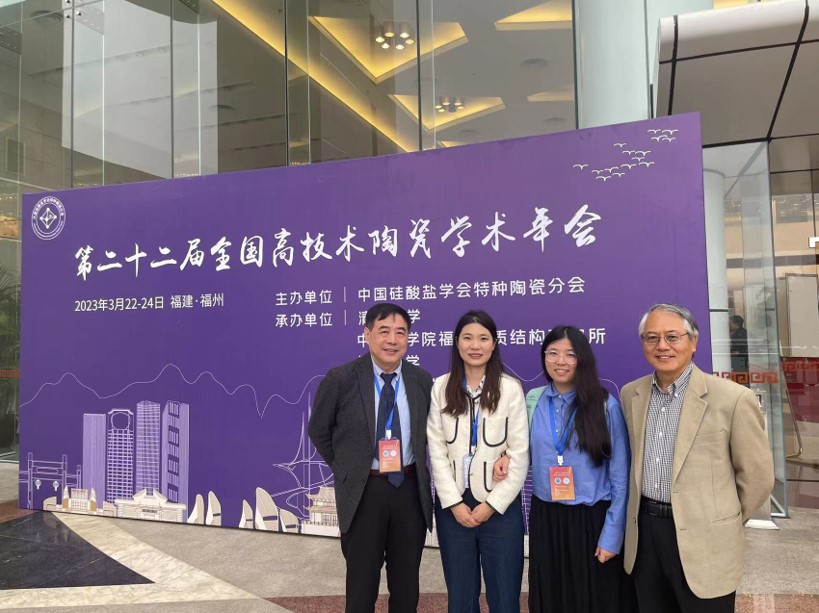
(From left to right: Editor-in-Chief Prof. Dr. Wei Pan, Managing Editor Ms. Diana Zhao, Publisher Ms. Jennifer Li and Editorial Board Member Prof. Dr. Hua-Tay Lin)
13 March 2023
MDPI’s Newly Launched Journals in December 2022
As a leading open access publisher, MDPI provides scholars with a high-quality and rich academic exchange platform by continuously expanding into new and exciting research areas.
In December 2022, MDPI launched five new journals, covering multiple subjects such as life sciences, biology, medicine and pharmacology, social sciences and humanities. These new journals are being edited by established scholars across the world.
|
Journal |
Founding Editor-in-Chief |
Journal Topics (Selected) |
|
Prof. Dr. Fabio Gresta, University of Messina, Italy| Editorial | view inaugural issue |
grass/forage/turf production; grassland management; pasture monitoring; grazing and livestock; grass agro-ecosystems| view journal scope | submit an article |
|
|
Prof. Dr. Christos G. Athanassiou, University of Thessaly, Greece| Editorial | view inaugural issue |
pesticides; fungicides; herbicides; fertilizers; soil conditioners| view journal scope | submit an article |
|
|
Prof. Dr. Stephen H. Safe, Texas A&M University, USA| Editorial | view inaugural issue |
receptor structure; receptor function; receptor signaling; receptor expression and regulation; receptor interactions with drugs| view journal scope | submit an article |
|
|
Dr. Jean Jacques Vanden Eynde, University of Mons-UMONS, Belgium| Editorial | view inaugural issue |
drug discovery; medicinal chemistry; preclinical and clinical research; marketed drugs; intellectual property and regulatory affairs| view journal scope | submit an article |
|
|
Prof. Dr. Heather Kanuka, University of Alberta, Canada| Editorial | view inaugural issue |
higher education; tertiary education; policy and practice in higher education; educational leadership in higher education; educational administration and management in higher education| view journal scope | submit an article |
If you are interested in creating more open access journals with us to publish cutting-edge research, please send your journal proposal application to newjournal-committee@mdpi.com.
7 March 2023
Meet Us at the 18th Chinese Conference on Colloid and Interface Chemistry (CCIC18), 7–11 April 2023, Xi’an, China

MDPI will be attending the 18th Chinese Conference on Colloid and Interface Chemistry (CCIC18), hosted by the Colloid and Interface Chemistry Professional Committee of the Chinese Chemical Society and Shaanxi Normal University, which will be held from 7 to 11 April 2023 in Xi’an, China.
This conference will exchange hot topics, research progress, development trends, personnel training in the field of colloid and interface chemistry, and the important application of colloid and interface chemistry in industrial and agricultural production through conference reports, invited reports, oral presentations, and posters. A total of 2000 delegates are expected to attend.
The main topics of the conference include the following: new theories and technologies in colloid and interface chemistry; ordered assembly of amphiphilic molecules; soft matter chemistry and supramolecular assembly; functional micro-nano materials; superwetting interface and material transport; optoelectronic functional assemblies and surface interfaces; biomolecular self-assembly and biocolloids; colloid motors; food colloids; applied colloid; and interface chemistry.
The following MDPI journals will be represented:
If you plan on attending this conference, please feel free to stop by our booth (#31) and start a conversation with us. Our delegates look forward to meeting you in person and answering any questions that you may have. For more information about the conference, please visit: https://www.nccic18.cn/.
7 March 2023
Displaying Co-Authors’ Email Addresses on the Webpage of Published Papers
MDPI is pleased to announce that we now display the co-authors’ email addresses in addition to the corresponding author’s email address on the webpage of published papers, protected by Captcha. For more information about this change, please visit the journal’s instructions for authors page.
We believe this change will facilitate academic discussions and advance our cause of open science and research. The corresponding authors are responsible for communicating with their co-authors and indicating in our system (https://susy.mdpi.com/) if co-authors would prefer for their email addresses not to be displayed.
1 March 2023
Coatings | Congratulations to the Section Editor-in-Chief Prof. Dr. Anton Ficai
We would like to congratulate Prof. Dr. Anton Ficai, Section Editor-in-Chief of Coatings (ISSN: 2079-6412), for his achievements in the fields of coatings/surface modification for restoration and environmental, medical, and industrial applications. He received the researcher award at the 1st Romanian Research Gala. This is a special award for the transfer of research results to the economy, awarded to Daniela Rus and Anton Ficai. You can see the details at the following link: https://www.aosr.ro/en/anton-ficai-aosr-corresponding-member-awarded-at-the-romanian-research-gala-1st-edition/.
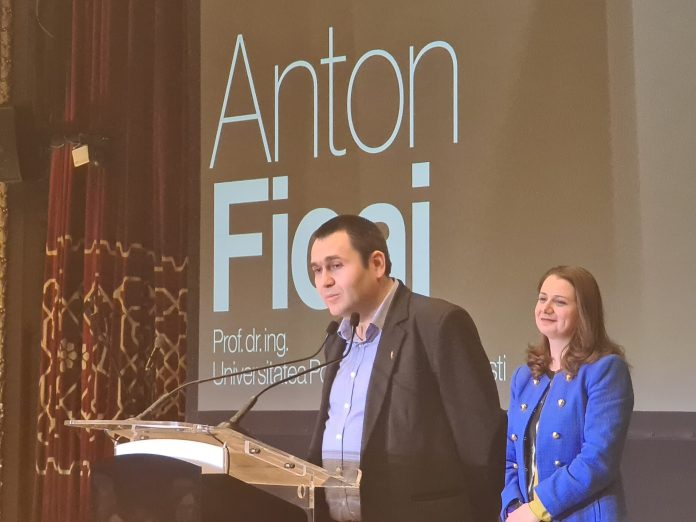
16 February 2023
Increasing Visibility for Preprints.org – Clarivate adds the Preprint Citation Index to the Web of Science

On 9 February 2023, Clarivate, a global leader in providing trusted insights and analytics, added the Preprint Citation Index to the Web of Science platform, streamlining the research process by allowing researchers to locate and link to preprints alongside other trusted content in the database.
The Preprint Citation Index will act as a bridge to connect cutting-edge preprints with peer-reviewed journal articles published within the Web of Science Core Collection. Alerts can be easily set to monitor new research across several repositories and authors will also be able to include preprints on their Web of Science Research Profile to more accurately display their various research outputs.
As of its launch, the Preprint Citation Index will provide nearly two million preprints from various repositories, including MDPI’s own Preprints.org.
MDPI's Preprints Platform – Preprints.org
To advance Open Science and the fast dissemination of research, MDPI offers researchers a free multidisciplinary preprint platform. Preprints.org accepts submissions from all research areas and offers authors high visibility, permanent archiving, article-level Metrics and immediately citable content by assigning a Digital Object Identifier (DOI) to all preprints.
During submission to any MDPI journal, authors have the option to share their research as a preprint. After an initial screening, the manuscript is available online in 48 hours or less. Once online, preprints can be downloaded, shared, commented on, and cited, providing authors maximum visibility.
We invite you to join the ranks of the over 100k researchers using Preprints.org and share your research.
For more information, please visit Preprints.org.



